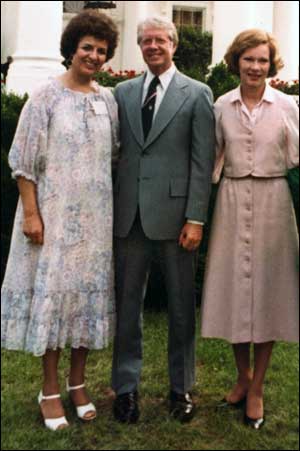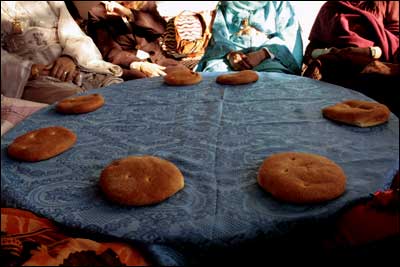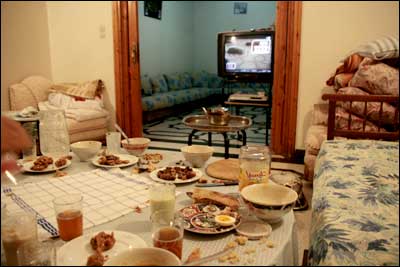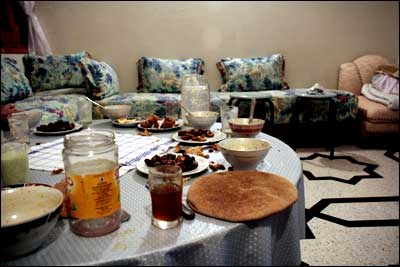
Lupe Anguiano is a former nun who offers a religious framework that counters Christian conservatism. She was a pioneer in welfare activism and the women’s rights movement, and reframed religious debates to include issues of social justice. At the opening of the Lupe Anguiano archive at UCLA earlier this year, she was called, “truly an unsung heroine of the American civil rights movement.”
Below, Anguiano discusses the perils of large, rich institutions, and recounts a time when the church actually leaned left.
Interviewer: Anja Tranovich
Interviewee: Lupe Anguiano
How have your religious beliefs influenced your activism?
I was always raised knowing we were made in the image and likeness of God. Fighting for equality has always been part of my upbringing. I was always brought up with the dignity of people.
Equality is something I have always struggled with. My dad was from an Indian background, and my mom was a Spaniard. My dad’s mom was the housekeeper to my mother’s parents. There was struggle from both of my grandparents’ sides. There were a lot of equalities issues.
To tell you the truth, the whole issue of standing up for your rights, I didn’t feel the need or strength of that until the ’60s.
You went into the convent when you were young, but got reprimanded because of your activism during the ’60s, especially on civil rights issues. What were you doing then?
I was a missionary sister, and the whole training is to respect others’ languages and cultures and not to impose your own ideas, and to be respectful of people, particularly of the poor. If people are poor, it shows the need for education; it’s not an issue of intelligence.
I feel very strongly about the issue of equality because I am Latina — Mexican American — and I had experienced problems of inequality among our people and black people. Some of the training I had as a missionary sister was to observe, judge, act — you observe, you judge, you act. You, as a citizen, have responsibility to stand up and do your part to make things equal for everyone. I was working with agricultural workers, with Latinos and black people as a missionary sister, and I saw some [of] the discrepancies and discrimination in how they were treated, especially with red lining. I thought that the church needed to stand up for these people.
One of my big confrontations, or rather challenges, with the church was with red lining, when blacks and Mexican Americans were not allowed to buy homes in certain areas of Los Angeles. I started to work for open housing. So did other nuns and priests, and many people were reprimanded.
I eventually left the missionary sisters because of that issue. The cardinal in Los Angeles then, Cardinal McIntyre, really forbade the sisters and priests from getting involved. The cardinal had local ties with developers, so he didn’t want to offend them. Some of us felt that it’s not an issue of not wanting to offend, but an issue of educating the Catholic community, that this is what the church stands for: equality.
That’s when you really saw the first exodus, not only myself, but also many others.
Pope John XXIII called for us to get involved with social issues. The pope called a Vatican Council and said that the church needed to be more involved and, like Christ, go out and work with people instead of just working in the convent.
So from the pope’s standpoint, and really knowing the doctrines of [the] church, we had to speak out and oppose on the local level.
The church used to have more involvement in these types of social issues. If you look at New York when unions were first founded, when the worker was exploited, the church stood up in support of the worker. And as a result of the church’s support, the unions were able to form.
Now you don’t see that kind of activism from the church.
You are right. Some of the very conservative churches have used the name of God and Christ to discriminate, particularly against women. It’s very confusing right now. You see the evangelical churches really coming down very hard on the equality of women and immigration, and supporting unjust things like the war. In those days [in the ’60s], the churches would be up in arms against the war. Today you just don’t have that.
Why is that?
[In] my honest opinion, I think it’s because of wealth and institutionalization of religion. Many times, ministers and priests and cardinals and bishops are more concerned about supporting the buildings and institutions instead of the message of Christ.
When Christ started the church, he lived his example — compassion, love, equality, peace, and justice. The church has become more concerned with sustaining the institution instead of Jesus’ message.
You see that in government as well. There is a general trend toward protecting the institution for the institution’s sake.
My feeling is that we’ve come to the point where people have to act. They have to look at their communities and voice their concern.
I was really delighted with the change in Congress, but there are still so many issues. Oil companies are really raiding the pocketbook[s] of the American people; it’s the height of injustice to Americans and all people. Bush doesn’t do anything about it, the church doesn’t say anything about it, and neither does the government.
I thank God we are in a free country; there is always the opportunity for change. I am 78 and I rely a lot on young people.
You did a lot of work for women in the ’70s alongside Gloria Steinem and Bella Abzug, forming the National Women’s Political Caucus and advocating for policies like the Equal Rights Amendment, which still hasn’t passed. In the ’70s, did you think that movement would have made more gains than it has?
Yes, because you know we were like on a roll; the Equal Rights Amendment was almost certified. I did a lot of work to bring church support to the Equal Rights Amendment.
You are often credited with changing the religious debate on this issue.
I was disappointed that it didn’t pass.
There were internal struggles within the movement as well. When I was fighting to change welfare so that it promoted education and training to help women go to work, some feminists decried having Latina women out of the house and working. Well, they were already working! Even the women at the Women’s Conference felt that we might be dismantling the safety net of Latina women by helping them work. How would we be dismantling their safety net by giving them the right to work? Not to do so would be condemning them to live in poverty. “Protect the minority women.” What is this?
Here we are, and women still earn 70 cents on every dollar earned by men. Talk about inequality! We still have it right now.
Gloria, Bella, and I thought, if you are going to talk about equality, we have to talk about equality across the board. They were very supportive.
I think we need the Equal Rights Amendment and its clear interpretation of equality for all. We need to really see equal rights from a total perspective of all people.
What I would like to see is young people really looking at equality from a local, state, and national perspective, and using their global eyes to really look at the world. You guys have a big job to do. I really believe in young people.
I sometimes feel that those concerned and active in younger generations are in the minority.
That’s always the case. Revolutions are started in groups of 10 or 12. If you can educate people to the issues and provide information, people will start to come out.
What are you working on now?
We are fighting the oil companies here in Ventura County, California.
The Houston-based Northern Star natural gas company is trying to bring liquid natural gas into the area. For two years we’ve been fighting against them. All the independent studies commissioned on the topic show that the need for natural gas is flat. It’s questionable whether or not we really need it, and it will do great harm to the coastal environment.
California is very resourceful. We have a lot of innovators, companies creating wind and solar solutions. Investing in liquid natural gas will prevent us from investing in clean energy. The lieutenant governor [of California] has been really fighting with us.
We are also really dealing with the legacy of Enron. We’ve heard the tapes, how Enron manipulated the California energy market, manipulating the need. This seems like such a clear parallel, and we are very conscious of that.
You’ve been involved in so many different campaigns: workers’ rights, unions, women’s rights, welfare reform, and environmental activism. What draws you to a particular subject or campaign?
Well, I am going to share with you a big secret. In reality, what I think happens to me is that our Lord just places me at the right place at the right time.
I do not enjoy confrontation. I would like to go to the hermitage and get away from all this stuff.
But I am placed in a situation, and I say, in my [conscience], I say: this is wrong. And I start becoming involved with people who are really doing something about it. I come in and support that work.
Recently I’ve been working with the Environmental Defense Center and Susan Jordan. She’s been an environmentalist all her life. She’s come up with some concise documents pinpointing some of the inequalities with the liquid natural gas issue. You have to be really dumb not to see it.
I’ll tell you what got me really ignited: when President Bush and the Congress signed the energy bill. It was more than I could handle. I just saw the exploitation [by] oil and gas companies. You’d have to be very callous and not very alert to see that. That [becoming angry] happens to me, and I guess it should really happen to a lot of people.
It’s a challenge. I would like to have young people take over so I can just rest.
What advice do you have for those young people?
To be strong.
We have a [conscience], and we know what’s right and wrong. We need to listen to our intelligence and come together.
And not to lose hope.
We can’t allow ourselves to get into a situation where we are ruled by the institutions around us.
- Follow us on Twitter: @inthefray
- Comment on stories or like us on Facebook
- Subscribe to our free email newsletter
- Send us your writing, photography, or artwork
- Republish our Creative Commons-licensed content
















